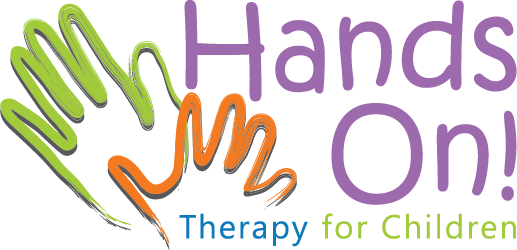Benefits of Occupational Therapy
A child would benefit from seeing an occupational therapist if they
experience challenges in any of the following areas of development:

Gross Motor Skills
Such as: balance, walking, running, hopping, skipping, jumping, climbing stairs & playgrounds, balls skills, riding a bike
Fine motor skills
Such as: using feeding utensils & scissors, holding a pencil, drawing & writing, fastening buttons and zippers, dressing & tying shoe laces
Low muscle tone or endurance for activity
Including: slouching at work desk, preferring sedentary tasks and avoiding physical activity
Visual perceptual and visual motor skills
Such as: eye/hand coordination tasks, assembling puzzles, drawing, copying, letter formation, spacing words and writing on the line, reversing letters when writing, coloring within the lines, organization of written work
Oral motor and feeding skills
Such as: difficulty chewing & drinking, picky eaters and problem feeders, gagging and food aversions, persistent feeding difficulties resulting in low weight gain
Self-care/Self-help skills
Including: feeding, dressing, toileting, bathing, grooming.
Sensory Processing
Such as: hyperactivity or under responsive reactions (behaviors are over or under responsive to the sense of touch, sound, sight, taste, movement, smell), awareness of the body’s position in space, clumsiness
Self-regulation
Including: the ability to control impulses, sustain attention & concentration, organize tasks, manage one’s behaviors, moods, & reactions, and maintain endurance for activities
Play skills, social interactions and academic achievement
Early intervention can have a positive impact on the quality of life of a child, influencing family relationships, friendships, overall development and self-esteem.
Occupational therapy can help children with the following conditions (and is not limited to):
- Learning Disabilities
- Dysgraphia (handwriting difficulty)
- Developmental Delays
- Dyspraxia (impaired motor planning)
- Sensory Processing Disorder
- Autism Spectrum Disorder
- Attention Deficit Disorder
- Developmental Coordination Disorder
- Cerebral Palsy
- Feeding Disorders (picky eaters/problem feeders)
